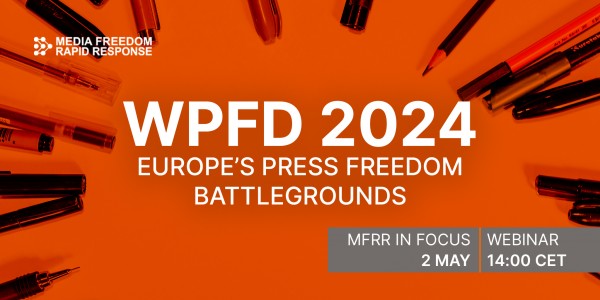More than two decades after the fall of the Berlin Wall, many top politicians and party leaders in South East Europe are still struggling to live with criticism. Instead, they continue to publicly accuse journalists of undermining national interests, treason, mafia ties, conspiracies etc.
The Vienna-based South East Europe Media Organisation (SEEMO), an affiliate of the International Press Institute (IPI), observes with growing concern the way many top politicians in South East Europe speak to media and about media. Press freedom is the basis of democracy. Public figures have to live with criticism in media.
Numerous recent examples illustrate SEEMO and IPI’s concerns.
On July 17, Romanian interim President Crin Antonescu labelled the U.S. daily The Washington Post and the French newspaper Le Monde as “contaminated publications”. Antonescu blamed the papers for Romania’s deteriorated international image. One week earlier, Romanian Senator Dan Sova accused the Brussels-based correspondent of the Romanian public radio station of “intoxicating the international public opinion and foreign officials by transmitting false information that compromises the current Romanian government”.
In Bulgaria, on July 5 Prime Minister Boyko Borisov lost patience with the media that had criticized the work of the Ministry of Interior and said: “Whoever criticizes the Ministry of the Interior serves the mafia.”
President of the Democratic Party of Socialists of Montenegro, Milo Djukanovic, the man who dominated Montenegro’s political scene for two decades, either as a prime minister or as president, said in an interview to the Belgrade magazine Vreme that the objective of the Montenegrin dailies, Vijesti and Dan, and the weekly Monitor was to “destroy and smear Montenegro” and him personally.
Molorad Dodik, president of the Serb-governed territory in Bosnia and Herzegovina, Republika Srpska, declared on June 4 that press freedom was guaranteed. Two days earlier, as SEEMO reported, Dodik asked Ljiljana Kovacevic, the local correspondent of the Belgrade-based Beta News Agency, to leave a press conference and to not return. Using disrespectful language to address the journalist, Dodik also called her a liar.
On May 13, Tomislav Nikolic, then presidential candidate and currently Serbia’s president, said during the TV show Rec po Rec (“Word by Word”), produced by Serbia’s public broadcaster, Radio Television Serbia (RTS), that once elected president, he would call RTS and say: “I am coming to the television tonight, you will inform about everything I do, I am the president of Serbia”, according to the Association of Serbian Journalists (UNS).
Indeed, these forms of harassment are not unique to South East Europe, but rather common even in the most respected democracies, which makes the problem even more concerning. In April this year, IPI published an article highlighting similar verbal and other attacks by politicians in Latin America. From Argentina, to Honduras and Panama, political figures have reportedly abused their position of power to harass journalists, the IPI article noted. Condemning such attacks, IPI Deputy Director Anthony Mills said on that occasion: “Politicians at all levels need to respect the fact that, in a democracy, their position entails greater scrutiny of their actions.”
Similarly, in South East Europe, I call on politicians to stop publicly naming and shaming journalists.
Politicians have to understand that press freedom is the basis of democracy. If media do not comply with ethical standards, there are channels to place complaints. Accusing journalists of being traitors or mafia agents, without any proof, does not contribute to the respect of the rule of law. It can only lead to self-censorship.


